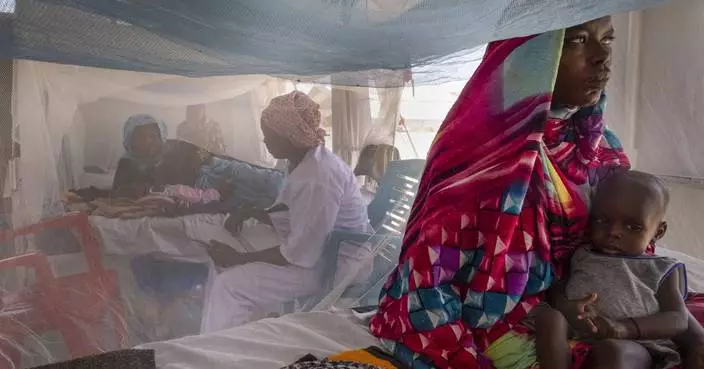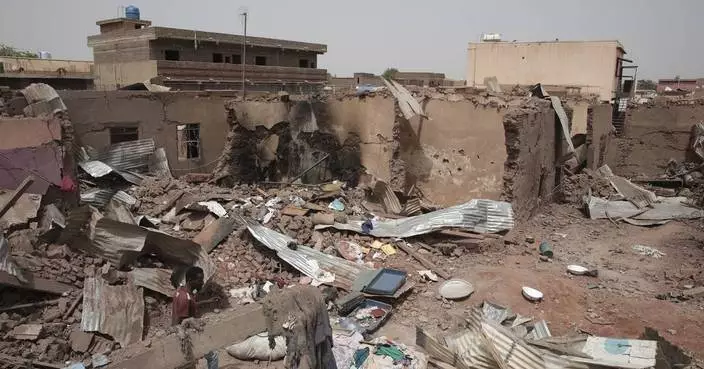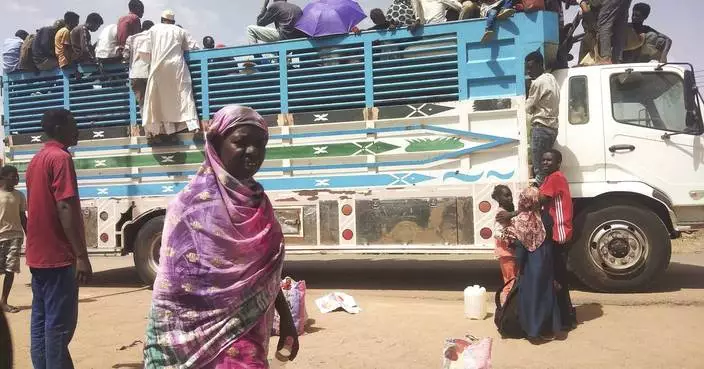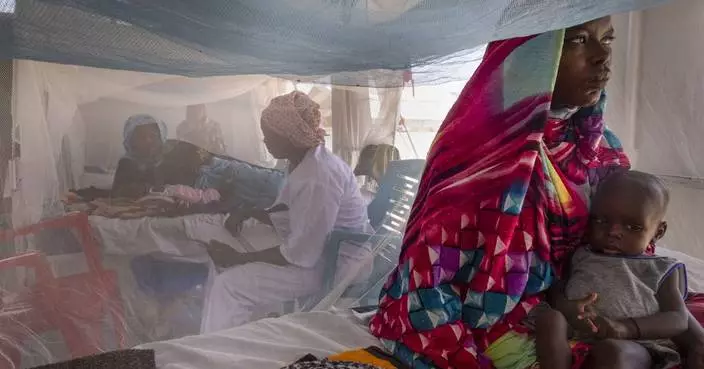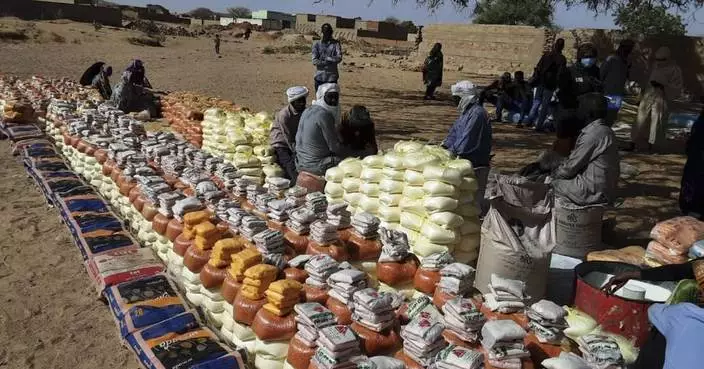The top U.S. diplomat to Africa said there must be an "independent and credible" investigation into the Sudanese military's violent dispersal of a protest camp in the capital earlier this month, and the ruling military council said it would announce the findings of its own investigation on Saturday.
Sudan's security forces violently swept away a camp in Khartoum on June 3 where demonstrators had been holding a sit-in, with over 100 people killed and hundreds wounded since then, according protest organizers. Authorities have offered a lower death toll: 61, including three security forces.
The violent beak-up marked a turn in the standoff between the protesters and the military, which removed autocratic President Omar al-Bashir from power in April after a months-long popular uprising against his 30-year rule.
Tibor Nagy, the U.S. assistant secretary of state for Africa, said the deadly break-up of the sit-in outside the military's headquarters "constituted a 180 degree turn in the way events were going with murder, rape, pillaging, by members of the Security Forces.
"Events were moving forward in such a favorable direction after 35 years of tragedy for Sudan. And then without any expectation, on June 3rd, the world changed," he said.
Sudan's chief prosecutor Saturday rejected the idea of any outside investigation.
The U.S. diplomat spoke late Friday upon his arrival in Ethiopia's capital Addis Ababa after a two-day visit to Sudan where he met with the ruling generals, protesters and victims of the crackdown, whose accounts were "harrowing and very persuasive."
Protest organizers called for an internationally backed probe into the crackdown. But the ruling military council, which acknowledged that security forces committed violations, strongly rejected the idea. It said it had set up its own investigation and it would announce its findings on Saturday, vowing to hold those responsible accountable.
Nagy said the head of the military council, Gen. Abdel-Fattah Burhan, "was adamant that there will be accountability" and that "we certainly hope that there will be such an investigation."
Nagy said the U.S. has been supporting mediation efforts by the African Union and Ethiopia's Prime Minister Abiy Ahmed to resume negations between the military council and protesters, who are represented by the Forces for the Declaration of Freedom and Change, a coalition of political groups.
"Both of the mediators are eminently qualified. ... We continue to believe very strongly in this mediation and we are absolutely supportive both," Nagy said.
The U.S. diplomat declined to outline possible measures Washington might take if the situation worsens. But he warned of negative scenarios as both the military council and protest leaders "absolutely distrust each other."
"We could end up with the type of chaos that exists in Libya or Somalia and the last thing Egypt wants is another Libya on its southern border. The last thing Ethiopia wants is another Somalia on its northwestern border," he said.
In the wake of the sit-in dispersal, negotiations between the military and protesters were called off and the FDFC held a three-day general strike and a campaign of civil disobedience. They also announced a package of conditions to be met before resuming talks, which included the formation of an international commission to investigate the killings of protesters, restored internet services, adherence to previous deals struck before the breakdown in talks and the return of paramilitary troops to their barracks.
The protesters ended their strike amid mediation efforts by the Ethiopian leader, who declared earlier this week that talks would be resumed "soon."
Also on Saturday, Sudan's chief prosecutor rejected the idea of an international investigation into the crackdown but sought to distance his office from the deadly break-up of the sit-in. Al-Waleed Mahmoud's comments came two days after military council spokesman Gen. Shams Eddin Kabashi said the council had discussed dispersing the protesters with top judicial officials.
Mahmoud said he did not discuss dispersing the protesters in the meeting.
"We did not discuss the sit-in break-up. We just discussed arranging the Colombia area," he said in a press conference in Khartoum, referring to a problematic area near the sit-in.
Meanwhile, Mahmoud said former president al-Bashir would face trial on corruption accusations next week.
In May, al-Bashir was charged with involvement in killing protesters and incitement to kill protesters during the uprising that started in December, initially over economic shortages but which later turned into calls for his ouster. The military toppled him on April 11.
The ousted president also is wanted by the International Criminal Court over charges of war crimes and genocide linked to the Darfur conflict in the 2000s, but the military has said it would not extradite him to The Hague.
JACKSON, Miss. (AP) — As a child, Dau Mabil escaped war-torn Sudan and built a new life in Mississippi. This month, fishermen found the body of the 33-year-old Mabil floating in a river, prompting calls for a federal investigation into his disappearance and death.
Mabil, who lived in Jackson with his wife, went missing in broad daylight on March 25 after going for a walk on a trail connecting the Mississippi Civil Rights Museum with other city landmarks. His brother, Bul Mabil, cast doubt on initial autopsy results published Thursday, which a sheriff said did not uncover signs of foul play.
Bul Mabil said he is dissatisfied with the way authorities have handled the case.
“I can't believe this would happen to someone who came here from a war-torn country,” he said in an interview with The Associated Press. ”I was expecting much better government in this country. But this is the way the United States operates. It is so appalling.”
Democratic U.S. Rep. Bennie Thompson of Mississippi, whose district includes Jackson, sent a letter to Attorney General Merrick Garland requesting a Justice Department investigation. Thompson said civil rights organizations had contacted his office about the case, and his letter described Mabil as an “African male, who is married to Mrs. Karissa Bowley, a white female.”
Family members and concerned citizens spent weeks searching for Dau Mabil, who was captured by a surveillance camera walking near the trail. In an interview, Bul Mabil said he raced to Jackson from his home in Houston on March 26 after hearing of his brother’s death from a family friend. He said he began looking into the case on his own, alongside the Capitol Police, a state law enforcement agency that operates in part of Jackson.
At the same time, Bowley led rallies and information campaigns on behalf of her missing husband, asking for the public's help to find him. She did not respond to a text or phone call seeking comment.
Fishermen spotted a body on April 13 in the Pearl River in Lawrence County, about 60 miles (97 kilometers) south of Jackson. Days later, officials confirmed the remains were those of Dau Mabil.
Bul Mabil said his brother's death has been devastating for him and his mother, who still lives in a refugee camp.
The brothers were among the thousands of young refugees brought to the U.S. during their country’s bloody civil war. After they arrived, Julie Hines Mabus, the ex-wife of former Mississippi Gov. Ray Mabus, started a foundation that helped the children settle in Jackson. She described Dau Mabil as “soft-spoken, a smile on his face, a little twinkle in his eye.”
“To get here was miraculous and then for Bul to get his brother here was even more miraculous,” Hines Mabus told the AP. “It was sort of like a homecoming. And now for Bul to face this with his brother, it’s just heartbreaking.”
Bul Mabil filed emergency legal papers to ensure his brother's body wouldn't be released to Bowley and her family until an autopsy was performed by both the state crime lab and an independent medical examiner. On Thursday, Hinds County Chancery Judge Dewayne Thomas granted the request, pausing release of the body and ordering a second autopsy.
In a subsequent court filing, Bowley's attorney said her client “embraces” the judge's order for an additional autopsy, with the condition it be conducted only after all law enforcement entities finish investigating.
Bul Mabil cast doubt on a statement from Lawrence County Sheriff Ryan Everett, who first reported the results of the initial autopsy Thursday. Everett said the autopsy did not reveal foul play, but an official determination may be made later, pending further testing.
Bailey Martin, a spokesperson for the state Department of Public Safety, said the state crime lab performed the autopsy. The department expects to receive DNA confirmation next week.
Bul Mabil's attorneys said they hope an independent autopsy can be done within the next week.
Capitol Police conducted an “insufficient” investigation, Bul Mabil said. One of this attorneys, Carlos Tanner, said his client was “being left in the dark about the suspicious circumstances” about his brother's disappearance and death.
Vallena Greer, a Jackson woman who took in and raised Dau Mabil, said he thrived in America. He received a school award for his improved English speaking skills and was a talented soccer player.
At the time of his disappearance, Dau Mabil worked as a manager at a Jackson restaurant and planned on returning to school to earn a computer science degree.
“He did well for what America wants immigrants to be," Bul Mabil said. “We called Mississippi our second home. We didn’t know something like this would happen to one of us.”
Michael Goldberg is a corps member for the Associated Press/Report for America Statehouse News Initiative. Report for America is a nonprofit national service program that places journalists in local newsrooms to report on undercovered issues. Follow him at @mikergoldberg.
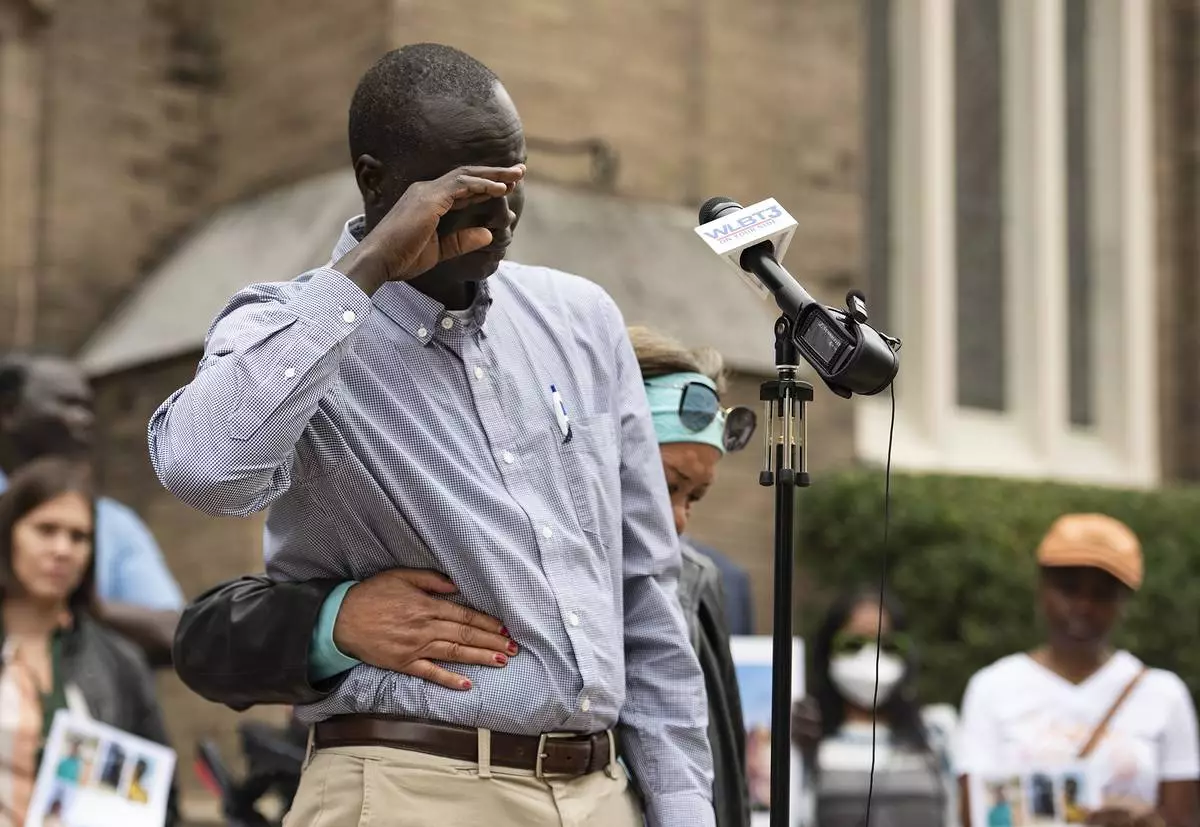
Bul Mabil cries as he speaks during a press conference to ask for the public's help in finding his brother, Dau Mabil, at St. Andrew's Episcopal Cathedral in Jackson Miss., on Monday, April 1, 2024. As a child, Dau Mabil escaped war-torn Sudan and built a new life in Mississippi. In April, fishermen found his body floating in a river in the state — prompting calls for a federal investigation into his disappearance and death. (Lauren Witte/The Clarion-Ledger via AP)
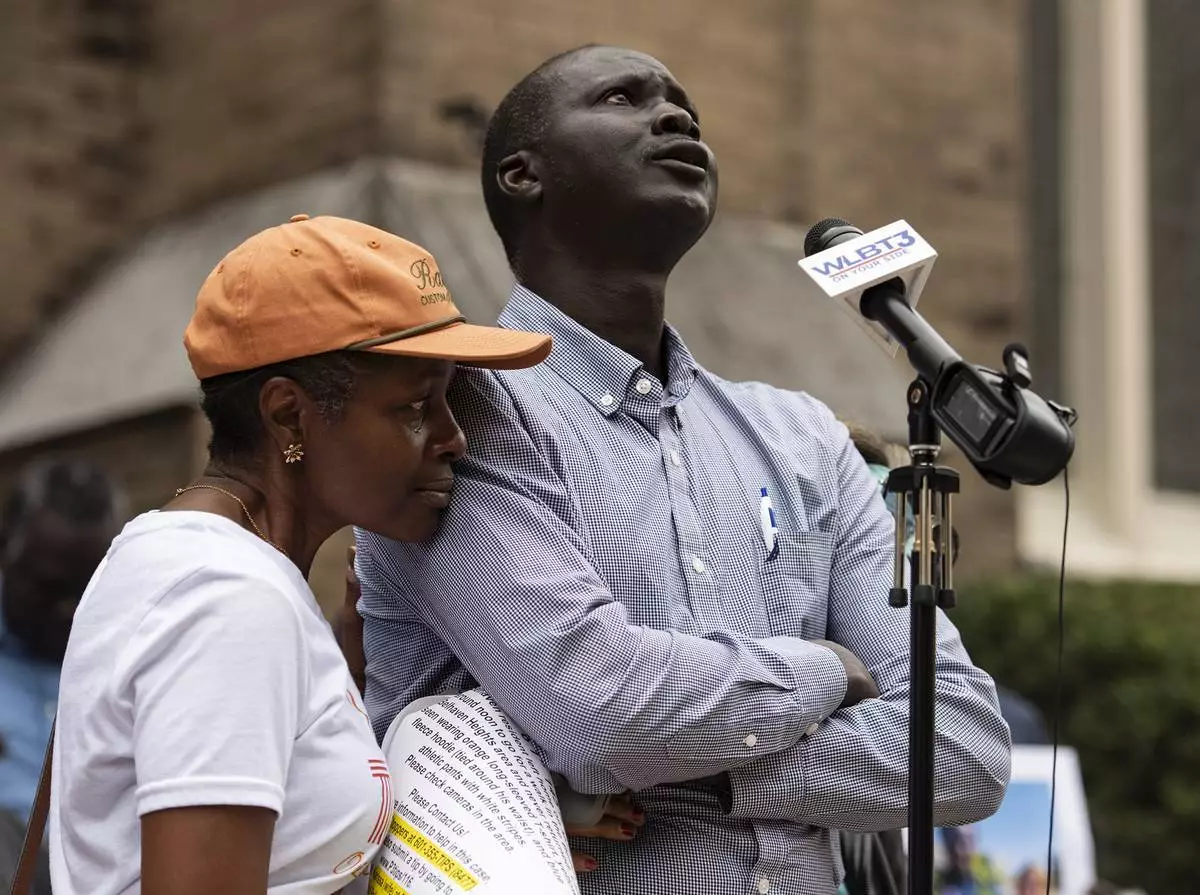
Dr. Rosie Ann Riley comforts Bul Mabil as he gets emotional speaking about his brother, Dau Mabil, during a press conference to ask for the public's help in finding Dau at St. Andrew's Episcopal Cathedral in Jackson Miss., on Monday, April 1, 2024. As a child, Dau Mabil escaped war-torn Sudan and built a new life in Mississippi. In April, fishermen found his body floating in a river in the state — prompting calls for a federal investigation into his disappearance and death. (Lauren Witte/The Clarion-Ledger via AP)
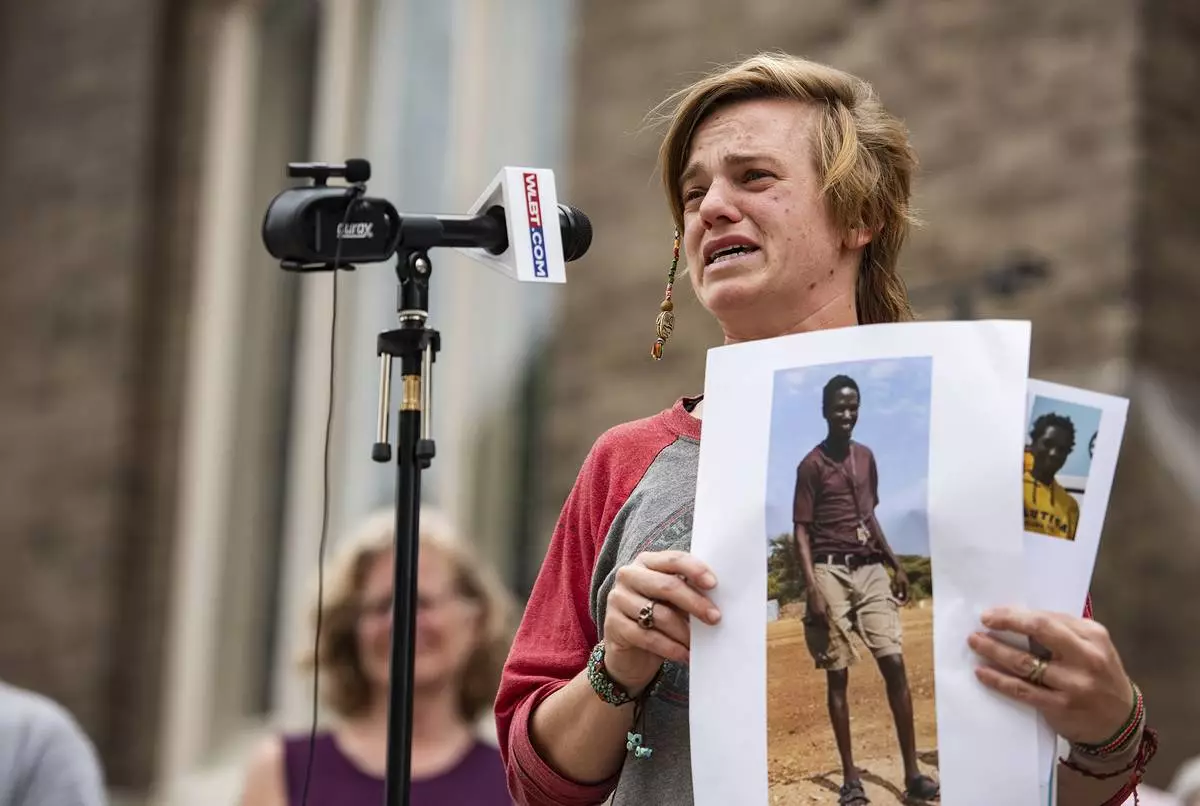
Karissa Bowley, Dau Mabil's wife, speaks during a press conference to ask for the public's help in finding Mabil at St. Andrew's Episcopal Cathedral in Jackson Miss., on Monday, April 1, 2024. As a child, Dau Mabil escaped war-torn Sudan and built a new life in Mississippi. In April, fishermen found his body floating in a river in the state — prompting calls for a federal investigation into his disappearance and death.(Lauren Witte/The Clarion-Ledger via AP)
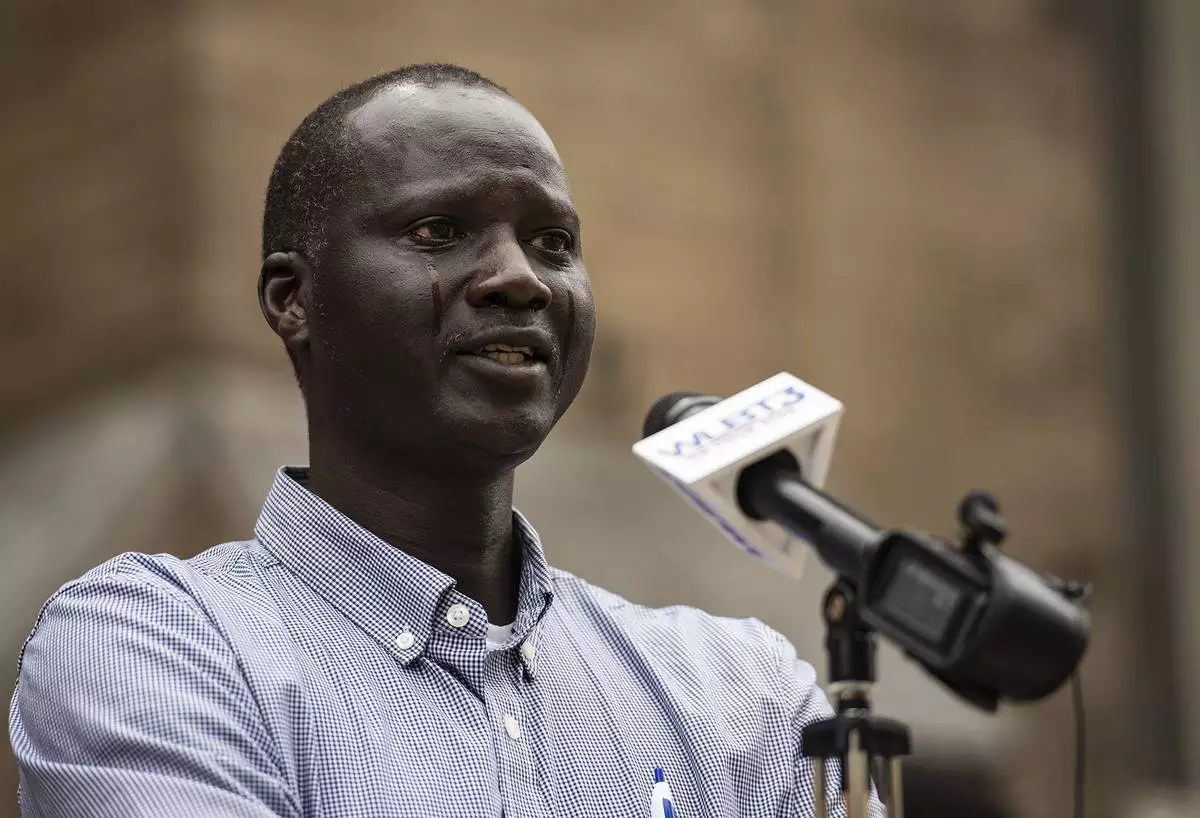
Bul Mabil has tears streaming down his face as he speaks during a press conference to ask for the public's help in finding his brother, Dau Mabil, at St. Andrew's Episcopal Cathedral in Jackson Miss., on Monday, April 1, 2024. As a child, Dau Mabil escaped war-torn Sudan and built a new life in Mississippi. In April, fishermen found his body floating in a river in the state — prompting calls for a federal investigation into his disappearance and death. (Lauren Witte/The Clarion-Ledger via AP)







